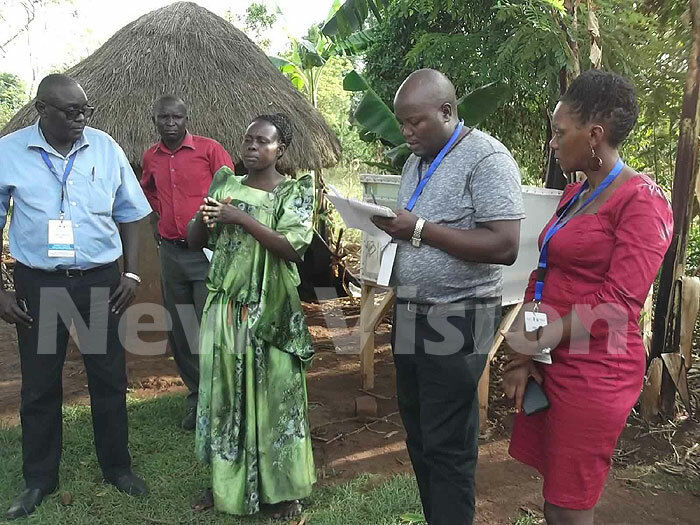Our husbands deny us land - Luwero women
Mar 12, 2017
The district leaders learn that a number of women don't have ownership over land

PIC: A woman shows around a small piece of land where they grow food for both commercial and domestic use in Luwero. (Credit: Noah Jagwe)
Women's lack of control, acquisition and ownership has incapacitated their ability to increase production in the agricultural sector.
This was revealed during a field visit to female farmers in Luwero district after a capacity development meeting for addressing gender in climate change adaptation planning for agricultural sectors.
The district leaders learnt that a number of women don't have ownership over land due to cultural beliefs or lack of clear legislation for women to own land which is a key factor in agricultural production.
The leaders argued that it's only through creating a budget that addresses the different needs and constraints of women and men that gender inequalities can be dealt with.
Several women under Kyosiimba Onaanya Farmers Group interviewed by the district leaders in Kamira sub-county said they have been dispossessed of their proceedings from yields on grounds that the women never come with land into their marriages.
Nassali Proscovia said it's true they lack ownership on land because where they spend most of the time the culture is different.
"It's mostly men who are involved in finding markets for the commodities. When we get the proceedings, my husband only buys meat and other delicacies," she said.

A resident of Kamira subcounty explains to district leaders and academicians about the challenges they face due to lack of owning land. (Credit: Noah Jagwe)
The women here have resorted to buying remote plots of land without the knowledge of their spouses.
Nassali said she only needs her husband's help only when they are signing a sales agreement because she can't read and write.
Unlike Nassali, Nakakooza Alice has been able to contain the situation but her husband still controls the decision-making, especially on what and where to plant for Nakakooza.
The group was also trained in climate-smart agriculture techniques to combat climate change. These included water harvesting, water bottle drips and adopting drought-resistant varieties.
Speaking at the same meeting, Luwero district assistant chairperson Joseph Serugo said considering climate change and gender issues helps translate into better results such as increased food security, yields and income.
"We cannot have better life when climate is not in our favor," he said.
Serugo said school dropouts, food insecurity and all forms of insecurity will increase if there are no approaches designed to mitigate harsh climate conditions that are engulfing Uganda and the rest of the world.
